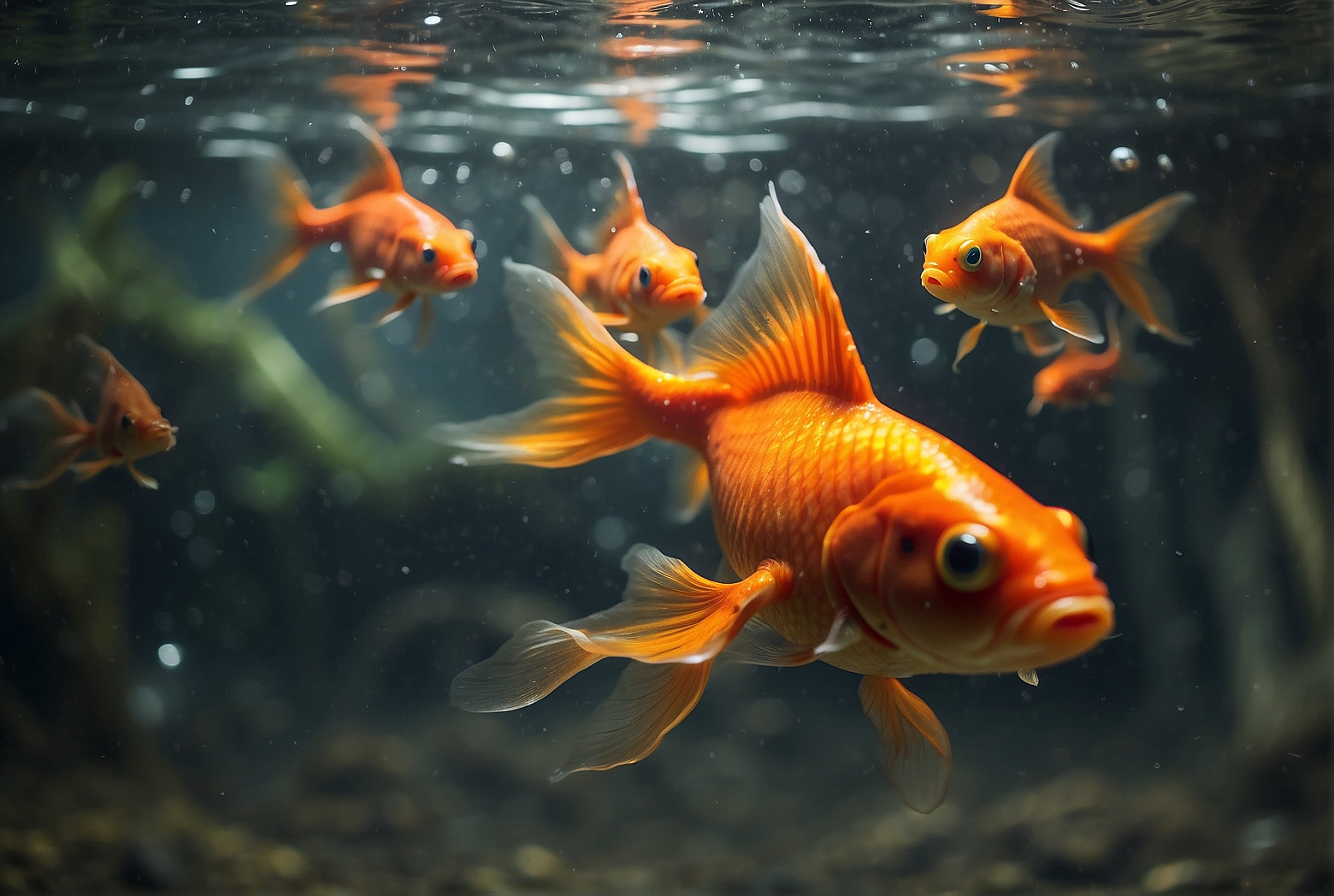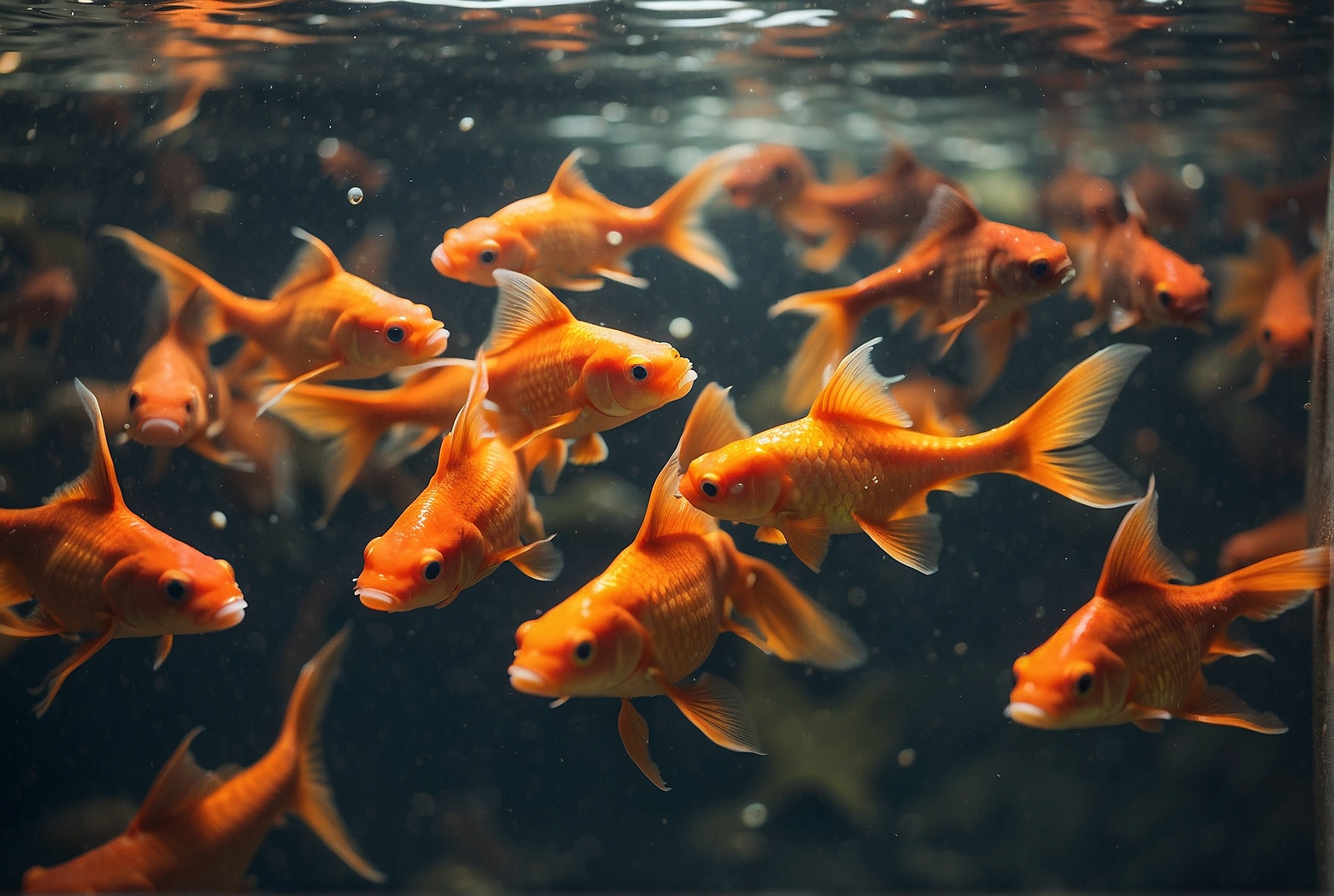Last Updated on May 3, 2024 by admins
Can goldfish survive in a lake?
? This is a question that many people have asked, and the answer is yes, goldfish can survive in a lake. Goldfish are hardy fish that can adapt to a variety of environments, including lakes. They can survive in lakes with the right conditions, such as the right temperature, oxygen levels, and food sources. In this article, we will discuss the factors that make a lake suitable for goldfish, as well as the potential risks associated with keeping goldfish in a lake.
How to Ensure Your Goldfish Thrive in a Lake Environment
If you are considering introducing goldfish into a lake environment, there are several steps you can take to ensure their health and wellbeing.
First, it is important to understand the natural environment of the lake. Goldfish are native to temperate climates, so if the lake is located in a warmer climate, you may need to take additional steps to ensure the water temperature is suitable for the fish. Additionally, you should research the lake’s water chemistry, including pH, hardness, and alkalinity, to ensure it is suitable for goldfish.
Second, you should consider the size of the lake. Goldfish require plenty of space to swim and explore, so if the lake is too small, the fish may become overcrowded and stressed. Additionally, if the lake is too shallow, the water may become too warm for the fish.
Third, you should consider the other species of fish that inhabit the lake. Goldfish are omnivorous, so they may compete with other species for food. Additionally, some species of fish may be aggressive towards goldfish, so it is important to research the other species in the lake before introducing goldfish.
Fourth, you should consider the presence of predators in the lake. Goldfish are vulnerable to predation from birds, mammals, and other fish, so it is important to ensure the lake is free from predators.
Finally, you should consider the presence of aquatic plants in the lake. Goldfish require plenty of vegetation to hide and forage in, so if the lake is lacking in aquatic plants, you may need to introduce some.
By taking these steps, you can ensure your goldfish thrive in a lake environment.
The Pros and Cons of Keeping Goldfish in a Lake
The keeping of goldfish in a lake can be a controversial topic. On one hand, it can be argued that goldfish can provide a unique and interesting addition to a lake’s ecosystem. On the other hand, it can be argued that goldfish can be an invasive species that can cause significant damage to the lake’s environment. In order to make an informed decision about whether or not to keep goldfish in a lake, it is important to consider both the pros and cons.
The primary benefit of keeping goldfish in a lake is that they can provide a unique and interesting addition to the lake’s ecosystem. Goldfish are colorful and can be a great source of entertainment for those who enjoy fishing or observing wildlife. Additionally, goldfish can provide a food source for other aquatic species, such as bass and catfish.
However, there are also some potential drawbacks to keeping goldfish in a lake. Goldfish are an invasive species, meaning that they can quickly reproduce and spread throughout the lake. This can lead to an overpopulation of goldfish, which can cause significant damage to the lake’s environment. Additionally, goldfish can consume the food sources of other aquatic species, leading to a decrease in biodiversity.
In conclusion, the decision to keep goldfish in a lake should be made carefully and with consideration of both the pros and cons. While goldfish can provide a unique and interesting addition to the lake’s ecosystem, they can also be an invasive species that can cause significant damage to the lake’s environment. Therefore, it is important to weigh the potential benefits and drawbacks before making a decision.
What to Consider Before Introducing Goldfish to a Lake Ecosystem
Before introducing goldfish to a lake ecosystem, it is important to consider the potential consequences of such an action. Goldfish are an invasive species, meaning they can disrupt the existing balance of the lake’s ecosystem. Introducing goldfish to a lake can cause a decrease in the number of native species, as goldfish are known to compete with native species for food and resources. Additionally, goldfish can spread diseases to native species, which can further disrupt the balance of the lake’s ecosystem.
It is also important to consider the size of the lake before introducing goldfish. Goldfish can grow to be quite large, and if the lake is too small, the goldfish may not have enough space to thrive. Furthermore, if the lake is too small, the goldfish may not have enough food to survive, leading to a decrease in their population.
Finally, it is important to consider the water quality of the lake before introducing goldfish. Goldfish are sensitive to water quality, and if the water is not of a suitable quality, the goldfish may not survive. Therefore, it is important to test the water quality of the lake before introducing goldfish.
In conclusion, before introducing goldfish to a lake ecosystem, it is important to consider the potential consequences of such an action, the size of the lake, and the water quality of the lake. By taking these factors into consideration, it is possible to ensure that the introduction of goldfish to a lake ecosystem is done responsibly and safely.

Q&A
Q: Can goldfish survive in a lake??
A: Yes, goldfish can survive in a lake if the water is clean and the temperature is suitable.
Q: What conditions are necessary for goldfish to survive in a lake?
A: Goldfish need clean water with a temperature between 65-72 degrees Fahrenheit and plenty of oxygen. They also need a good food source, such as insects, worms, and other small aquatic creatures.
Q: How long Can goldfish survive in a lake??
A: Goldfish can survive in a lake for many years if the conditions are suitable. However, they may not reach their full size and lifespan due to competition for food and other environmental factors.
Conclusion
In conclusion, goldfish can survive in a lake, but they may not thrive. Goldfish are not native to most lakes, so they may not be able to compete with the native species for food and resources. Additionally, goldfish can reproduce quickly and can become an invasive species, which can disrupt the natural balance of the lake. Therefore, it is important to consider the potential consequences before introducing goldfish into a lake.

